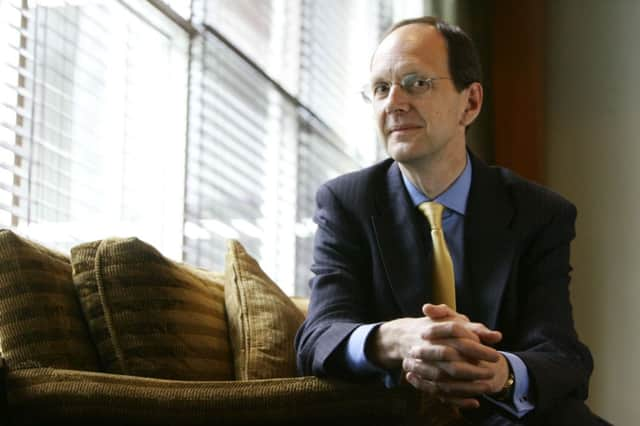Terry Murden: spotlight on CBI after No backing


Arguments about whether the CBI consulted its Scottish members and exactly how many it has in Scotland are important issues, though not as straightforward as they seem.
Sources in the CBI have admitted to me that there was no vote or even a discussion on the decision last week to register with the Electoral Commission as a supporter of the No campaign. That looks like an error of judgment. On the other hand, what constitutes a “Scottish” member?
Advertisement
Hide AdAdvertisement
Hide AdBusiness for Scotland, the pro-independence lobby group, claims that as few as 80 Scottish companies are members of the CBI, somewhat shy of the CBI’s own figure of 24,000. In fact, membership of CBI Scotland is zero. It does not exist as a legal entity and all members sign up to the wider CBI, not of any of the regional bodies which exist only for accounting and management purposes.
The CBI’s active “Scottish” membership includes many who are employed by companies headquartered around the world. John Howie, the chairman of CBI Scotland, works for Babcock, which is not headquartered in Scotland, but his role, membership and interest in the independence debate is no less valid because of it.
The blurred definition of “Scottish member” in this context is in danger of obscuring the importance of the economic issues. Even so, CBI is likely to audit its membership to help clarify its Scottish membership, though it is not likely to vary much from the published figure. The most important figure, it argues, is the half a million people employed in Scotland by CBI members whose interests it seeks to represent.
Following this line of argument helps to underscore, rather than undermine, the legitimacy of the CBI’s decision on behalf of members across the UK and beyond who have a stake in the Scottish economy. That is as likely to be a defence company headquartered in France as a butcher’s shop in Fife.
Nor is this issue one that rests with CBI Scotland, which is wrongly accused of registering with the Electoral Commission. The CBI’s London head office has taken over responsibility for the independence campaign because it is seen as a UK and not a purely Scottish issue. It was advised that it must register with the commission to comply with the law.
A crucial point is that the CBI’s opposition to independence has been policy since the SNP came to power in 2011 when it became clear that the new government would campaign for constitutional change. The decision last week has changed nothing.
Those organisations now resigning from the CBI are claiming it is because of a need to be impartial, but they could have resigned at any time in the last three years. Even so, some are expected to review their decision at some point, and they may rejoin the CBI.
Of the dozen or so that have quit, only three are companies, one of which (Balhousie Care Group) is run by the leader of Business for Scotland. STV said it had to resign to comply with its broadcasting licence.
Advertisement
Hide AdAdvertisement
Hide AdOf course, if the trickle turns to a flood, the CBI leadership will have questions to answer about its accountability, and whether it really is representing the “prevailing” view.
Twitter: @TerryMurden1